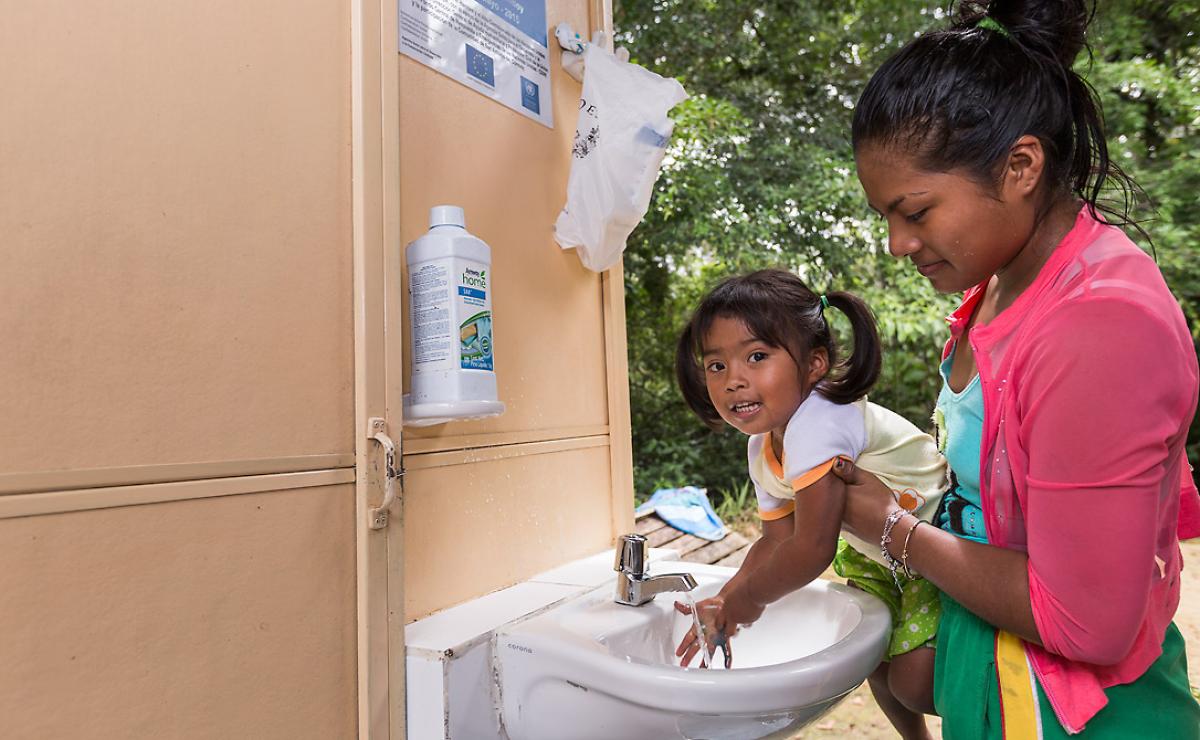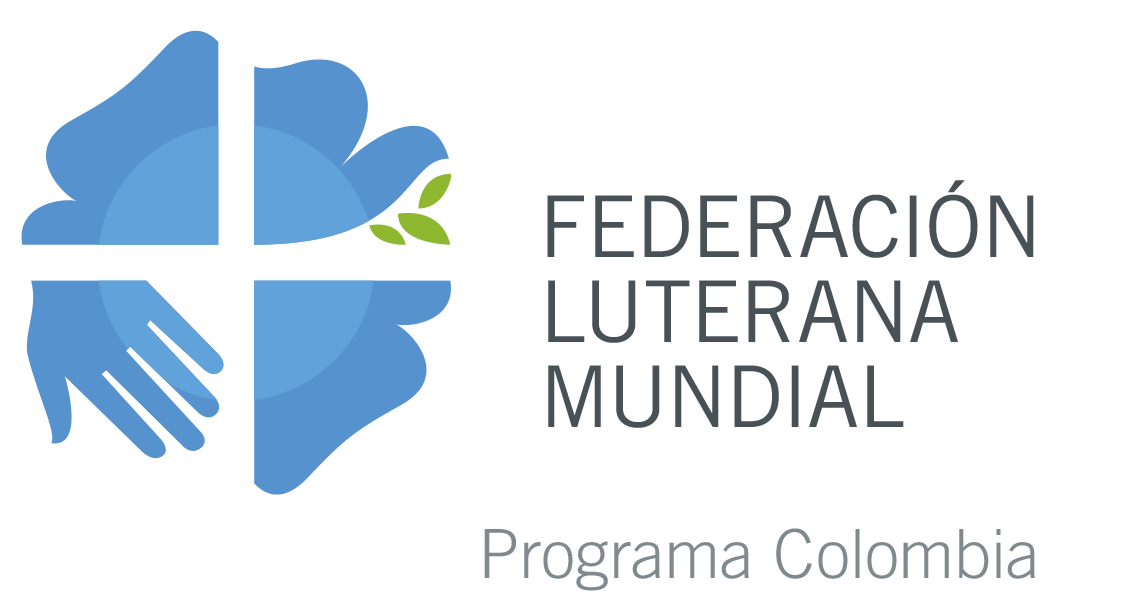LWF Colombia joint recipient European Union 2m euro grant

The Lutheran World Federation's Colombia program is one of four organizations in Colombia to have been been awarded a joint grant of two million euros from the European Union to attend to the humanitarian needs of rural, afro-descendant and indigenous populations
In cooperation with the Church of Sweden, the LWF will contribute to the protection and improvement of the living conditions of rural indigenous and afro-descendant communities affected by the armed conflict and natural disasters in Bojayá (Chocó). This project will also involve advocacy actions so that government and non-governmental entities can meet the unsatisfied basic needs of this population.
Action Against Hunger, Alianza por la Solidaridad, Norwegian Refugee Council and The Lutheran World Federation launch humanitarian projects in Colombia with EUR 2 million of funding from the European Union
BOGOTÁ, Colombia 18 August 2016. As part of tomorrow’s commemoration of World Humanitarian Day on the 19 August, a group of humanitarian organizations consisting of Action Against Hunger, Alianza por la Solidaridad, Norwegian Refugee Council and The Lutheran World Federation (LWF), are launching projects designed to attend to the humanitarian needs of rural, afro-descendant and indigenous populations in the Departments of Putumayo, Valle del Cauca, Nariño, Cauca, Norte de Santander and Chocó.
The projects have been financed by the European Union for a total amount of almost 2 million euros (around 6,500 million Colombian pesos) and will benefit 20,045 people living in the six departments.
The projects will focus on providing assistance to the populations affected by the armed conflict, address the persistent deficiencies in meeting basic needs in areas such as water sanitation and hygiene, and will also include the provision of legal and psychosocial accompaniment to victims of violence.
“The objective of these projects is for target populations to recover their dignity and improve their living conditions,” says Saara Vuorensola-Barnes, the LWF representative in Colombia. She adds that “the work of humanitarian organizations doesn’t substitute the work of local institutions and authorities but instead complements their actions. This is because these public entities are often overwhelmed in terms of their capacity to respond to a complex and persistent humanitarian crisis.”
The four organizations will work together to develop a joint communications strategy to highlight the harsh realities faced by local populations in these territories and have observed that beyond the signing or not of a peace agreement between the Government of Colombia and the FARC guerrilla group, the populations of these departments have been severely hit by violence. As a result, there is a continued need for humanitarian assistance in both urban as well as rural zones. The most vulnerable communities are specifically affected by these situations, which is why these populations are being prioritized by these projects.
The four organizations agree that the role of international humanitarian organizations constitutes an important contribution for peace building and highlight the importance of remembering that while there are populations affected by the conflict and with unsatisfied basic needs, then there will still be a need to provide quality humanitarian assistance even during the post-peace agreement stage.
General information about the four humanitarian agencies
- The project that will be implemented by the Spanish organization Acción Contra el Hambre (Action Against Hunger) has the objective of reducing the risks of a lack of protection for the most vulnerable populations affected by the armed conflict in the Department of Putumayo. This project will ensure that the target population’s basic needs are met, and that they improve their access to water, sanitation and hygiene in rural zones, where it is difficult to satisfy basic needs. In the initial stage of the humanitarian emergency the project will be implemented in receptor communities for the internally displaced population.
- The project developed by Alianza por la Solidaridad (Partnership for Solidarity) is directed at meeting the basic humanitarian needs in urban and rural communities in the municipalities of Buenaventura (Valle del Cauca) and Tumaco (Nariño), which primarily consist of afro-descendent populations. This organization will also provide legal guidance and accompaniment to beneficiaries to help the target population learn about their rights and the assistance mechanisms available through which they can access these rights. Alianza por la Solidaridad will also provide psychological accompaniment for individuals and/or families who are victims of the conflict, among other activities.
- The Norwegian Refugee Council will implement its project in the Departments of Cauca and Nariño as well as in the region of Catatumbo (Norte de Santander), with the objective of improving access to protection mechanisms in rural indigenous and afro-descendent communities affected by the conflict during sudden and chronic crises. The organization will also support local populations to develop violence prevention and/or mitigation strategies that reduce the affects of the armed conflict.
- Lutheran World Federation, in cooperation with the Church of Sweden, will contribute to the protection and improvement of the living conditions of rural indigenous and afro-descendant communities affected by the armed conflict and natural disasters in Bojayá (Chocó). This project will also involve advocacy actions so that government and non-governmental entities can meet the unsatisfied basic needs of this population.
